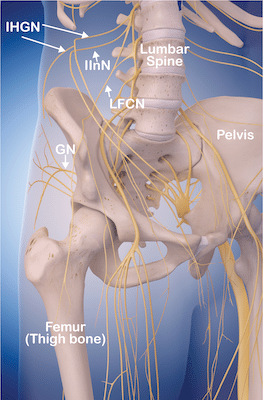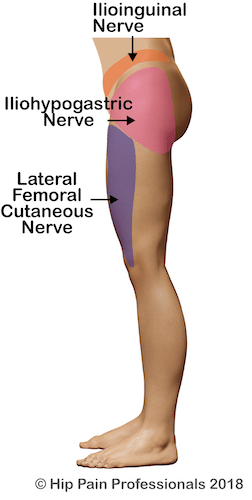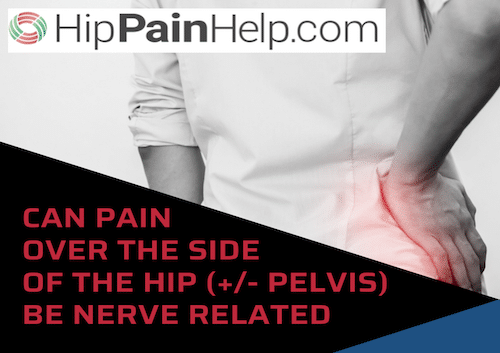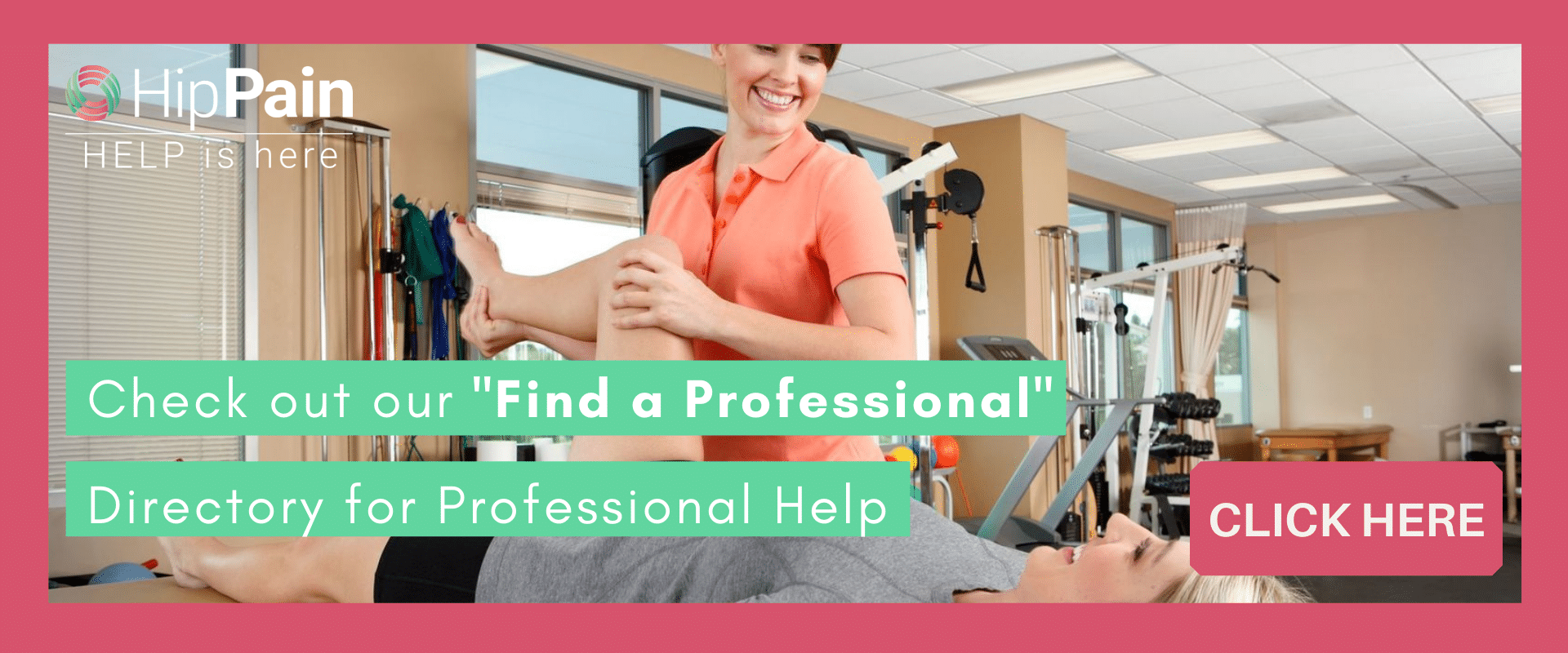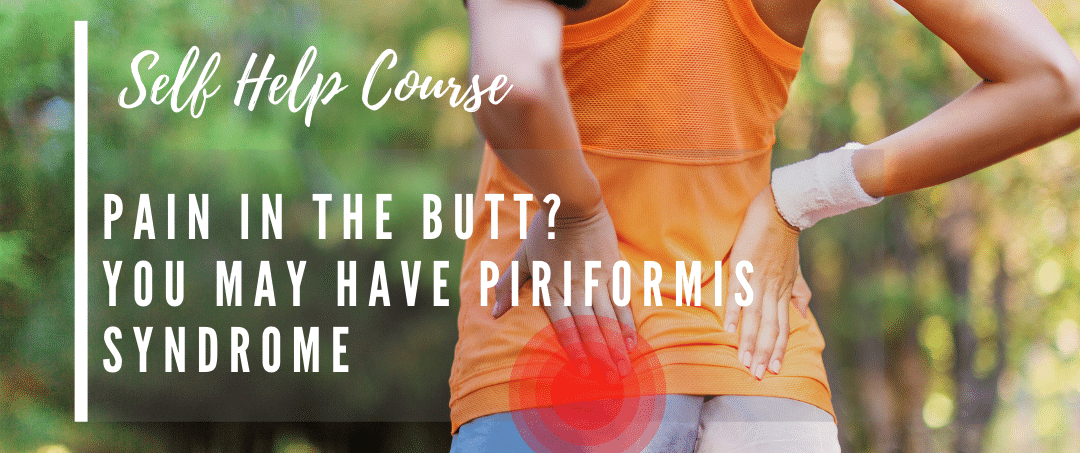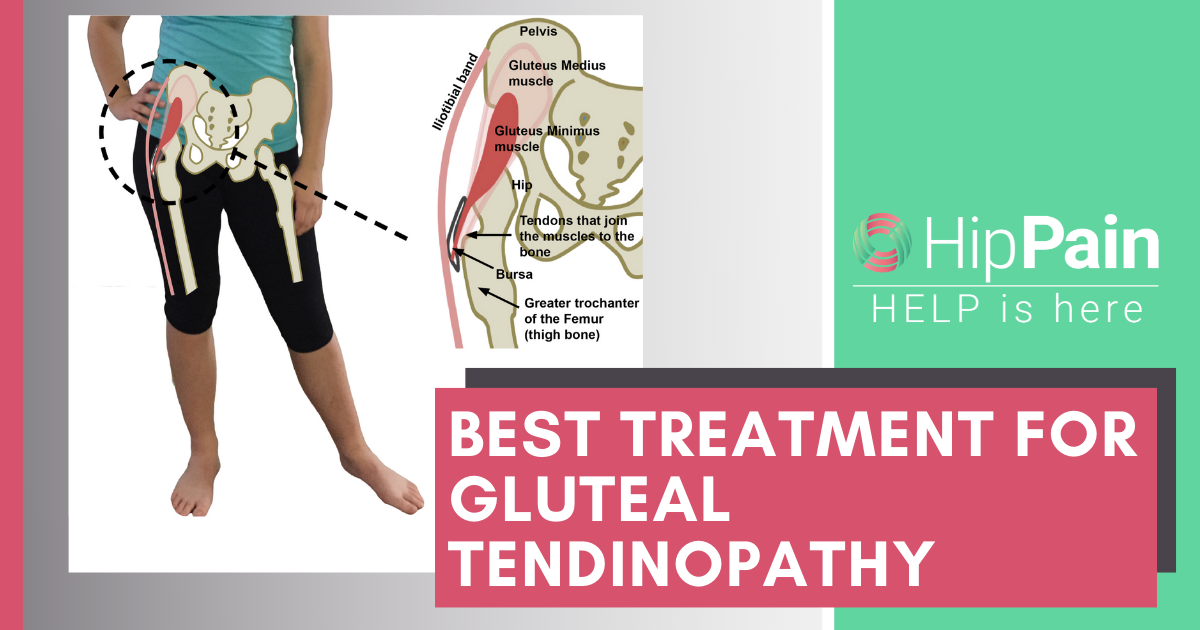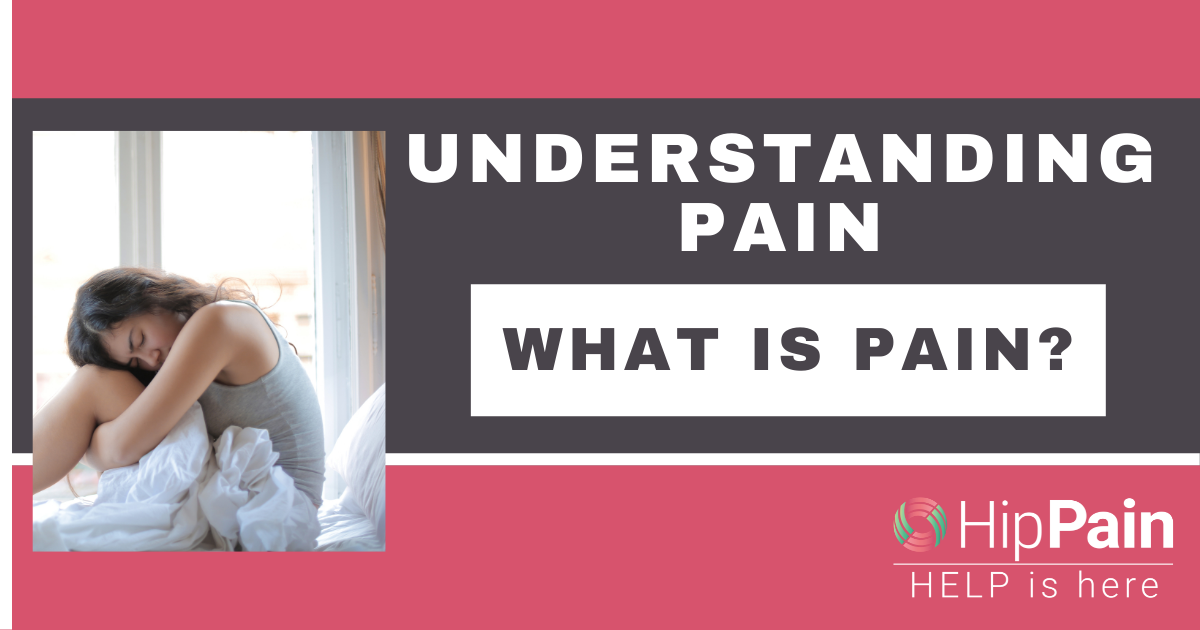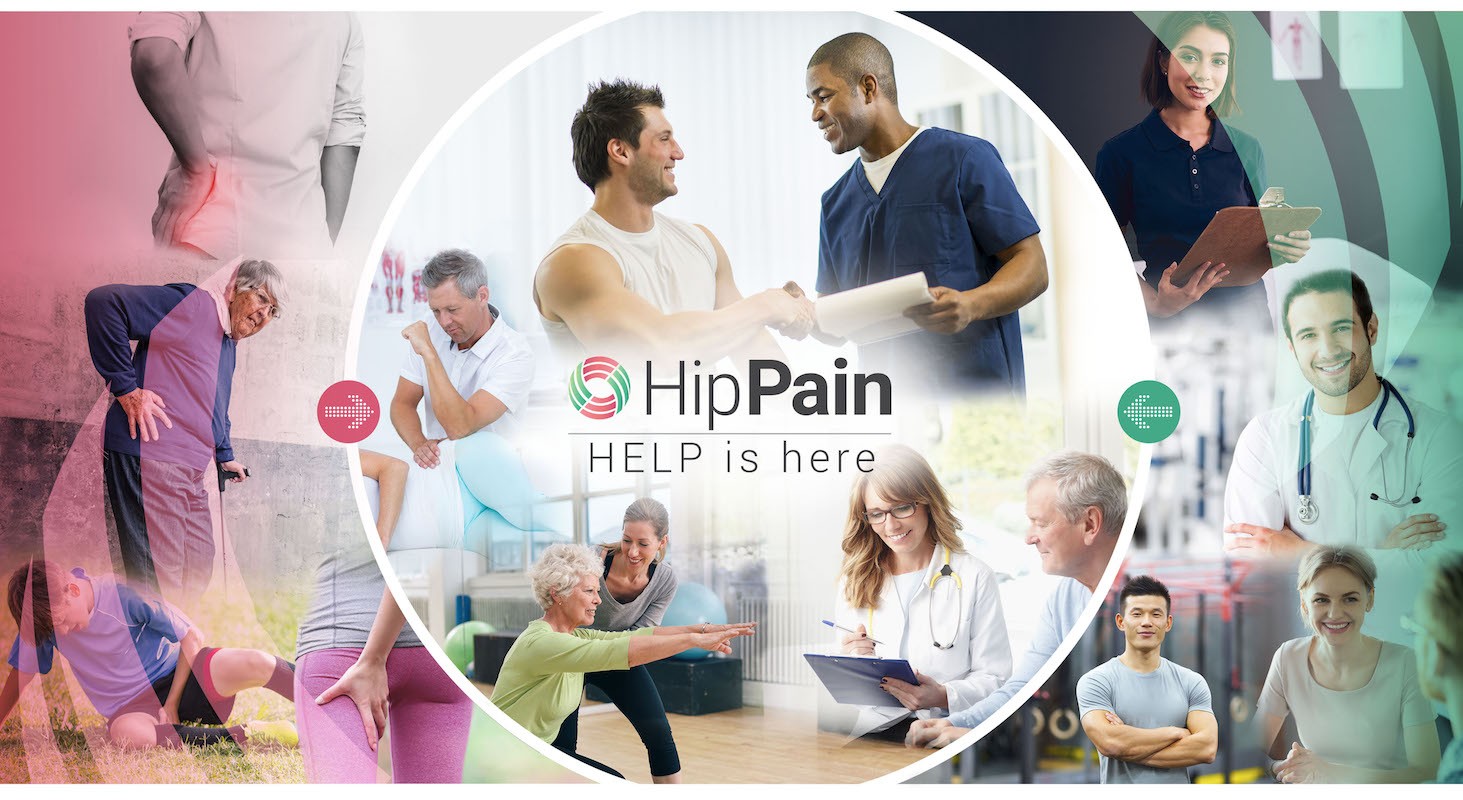Neuralgia related to the posterior branch of the iliohypogastric nerve most commonly develops due to excessive compression of the nerve as it crosses over the bony edge of the top of the pelvis to travel into the side of the hip. Here it may be affected by overly tight jeans or trousers, or from a fall onto this region, such as a fall off a bicycle or motorbike. Pain is felt in the area of its skin supply (see picture above).
The lateral femoral cutaneous nerve may be compressed between the hip flexor muscles as it exits the pelvis just inside the bony point at the front of the hip (anterior superior iliac spine or ASIS). It may also be compressed by tight belt/jeans/trousers or a large abdomen sitting down over the front of the hip (which is also more likely during pregnancy). This nerve may also be stretched or damaged during an anterior approach Total Hip Replacement (where the scar is at the front of the hip). Symptoms developing after hip replacement surgery usually diminish or disappear over time. Symptoms present in the outer thigh region that the nerve supplies and are only sensory, with no impact on muscle function.
The gluteal nerves do not have a sensory supply to the skin, but gluteal neuralgia may be felt as a deep buttock pain, sometimes like a cramping feeling. These nerves provide important motor supply to the gluteal (buttock) muscles and the tensor fascia lata (TFL) muscle at the side of the hip. Damage to these nerves may alter your ability to stand on one leg, walk without a limp, climb stairs, and lift the leg out to the side or behind you. The nerves may be irritated or compressed as they pass out into the back of the pelvis and run through the soft tissues of the buttock. Very occasionally, these nerves may also be damaged by surgery, such as a posterior approach Total Hip Replacement (where the scar is at the back of the hip).


